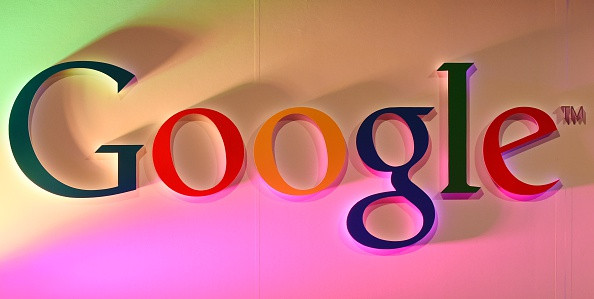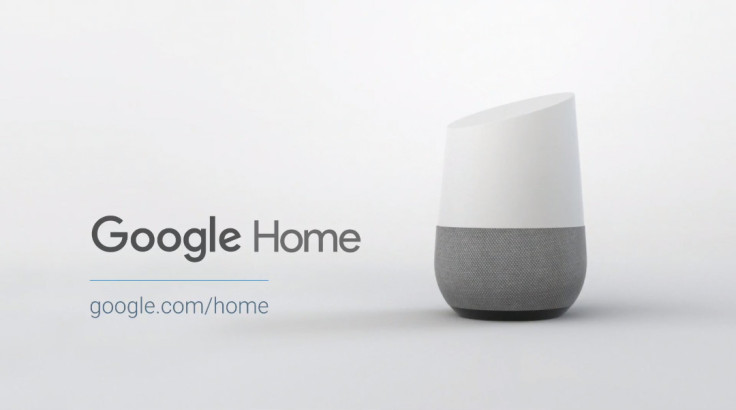Google's future is brighter than Apple's thanks to its smart moves on artificial intelligence

The big razzmatazz show-and-tell press conference has become a staple of the tech world. Like latter day Great Lafayettes, today's tech CEOs produce out of their hat a series of eye-catching (or otherwise) new products to the appreciative applause of an enthusiastic audience.
The instant reaction to last week's Google's I/O conference [innovation in the open] was a collective "meh". Allo, a new messaging app; Google Home, another me-too smart home device to rival Amazon's Echo; VR stuff and a few other bits and bobs. Twitter passed its judgement and moved on.
But like all instant judgements, they are often flawed. I/O 2016 marked a turning point in history. It was the conference where Google finally came out as an artificial intelligence (AI) engine built on an enormous platform, and not a mere search company. In doing so it has killed any talk of how Apple, Facebook or Amazon somehow represent some kind of existential threat. They don't.
Google's avowed aim is to organise all the world's data so what would happen if Google had access to everything in our lives? What we are doing, where we are, what we get up to, where we eat and what we buy. With that data and powerful AI to make sense of it, then Google could spot the patterns in our daily lives and use that to make predictions about what we need next.
Google's big data bonanza
Think about how in-game purchases work. Games designers see when you are stuck on a level and at that moment offer to sell you a sword at precisely the time you need it most; not before, not after. It has value only in that moment. Google wants to turn our lives into a string of in-game purchases.
It is one thing to do that in a video game but in real life those kinds of calculations require unimaginably large data sets that allow AI to build up real understanding of what that data means. If only Google had access to that kind of rich data...
Hello, Android. And have you met, calendar, mail, maps, traffic, pictures, play, news and Android Pay? What do all of those services do? Give our data and our intentions to Google. And of course they sit on Google's key asset, the unimaginable wealth of data that sits on its servers.

Imagine that Google sees you have a dinner date coming up. Google Assistant chirps: "Going out for dinner? Here are some restaurants you might want to think about." This isn't search, this is Google pre-empting our needs before we even know we need them. And like any real assistant (think Anne Hathaway in The Devil Wears Prada) it should go the extra mile. "Can I recommend this to you for your dinner tomorrow night at 8pm with your boyfriend - and by the way it's his birthday in a week and this is what you bought him last year on Amazon."
The ideological differences between the tech front-runners
Google is a platform company; Apple is a hardware company that makes money by selling you expensive pieces of very smart hardware. For Apple the phone is smart, the cloud is dumb. For Google, as a platform company, the phone is just a device for harvesting information and communicating with the smart cloud. You can use Android which is great for them, but you can also use Apple if you like. But if you do, Google will not get as rich a stream of data, and you just will not get as good a service as a result.
This is a problem for Apple. While it has built a fortune by selling you very nice phones, its ability to do meaningful AI is limited. Yes it has Siri, but it is a party trick. Once you have asked Siri to open the pod bay doors a few times, you move on. Apple was late to the party over mapping and it is late to AI. If the world shifts to AI, and there is every chance it will, Apple is in trouble.

It is worth mentioning Amazon. There was an idea kicking around at the end of last year, initiated by very savvy tech investor Bill Gurley, that Amazon represents a threat to Google. His argument is that Google makes money by selling ad words to companies. But if users are on Amazon's site when they want to buy something, why pay Google? With respect to Gurley, his thinking is five years out of date. If the web were still just the desktop, his argument would be sound. But mobile changes everything. Users have so many ways of expressing intent that are far richer and more subtle than typing things in search boxes. Unfortunately for Amazon it has no access to those richer, subtle ways.
As for Microsoft, with its less than 1% share of the mobile OS market, it is irrelevant.
It is not all plain sailing for Google
Two EU investigations see it fighting a right to be forgotten ruling as well as a copyright court case against Oracle over Java APIs used in Android. The latter is potentially a lot more worrying for them.
Then there is the problem of Apple. Google's services do run on Apple, but the once friendly relationship between them soured a long time ago, and Apple has made a point of de-Googling its experience. Although Apple accounts for just under 20% of the smartphone market, it is a very attractive slice that Google finds hard to reach.
But far more of a threat is Google's tone-deafness when it comes to understanding real people. Remember Google Wave? The supposed email killer that was so complicated no one could work out how to use it? Remember Google Glass? It was socially inept. Or Google+, its hopeless social network (once described as being like the gym - everybody joins, but nobody uses it).
This is Google's Achilles heel, it is great at technology, lousy at people.
© Copyright IBTimes 2025. All rights reserved.






















